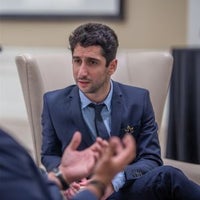Vanuatu, suffering a diabetes rate far higher than the world average, is hopeful locally grown marijuana can help.
By Javier Hasse
Phoenix Life Sciences featured in Entrepreneur
The Republic of Vanuatu is facing a diabetes epidemic. It is estimated that roughly 13 percent of the country’s population suffers from the disease. This compares to a global average of 8.5 percent.
To counter this epidemic, Vanuatu’s national health care system is working on a series of clinical trials using a cannabis-based drug to treat diabetes.
Why it matters
These trials might provide us with an treatment for a condition that affects 422 million adults worldwide. As of 2012, 1.6 million deaths were directly attributed to diabetes each year. Here are some other important things you should know about diabetes before moving on:
1 in 3 adults aged over 18 years is overweight.
1 in 10 adults are obese.
Type 2 diabetes in much more common than type 1 diabetes.
A majority of diabetes deaths occur in low- and middle-income countries.
Diabetes is an important cause of blindness, amputation and kidney failures.
As of 2010, diabetes was the seventh leading cause of death in the U.S., taking over 17 million lives per year.
There's evidence marijuana works for diabetes.
A few studies support the hypothesis of cannabis working to treat diabetes.
One such study was published in The American Journal of Medicine in 2013. The scientists involved evaluated the impact of cannabis use on insulin, glucose and insulin resistance among adults, and concluded that “marijuana use was associated with lower levels of fasting insulin and HOMA-IR, and smaller waist circumference.”
Another study found that Cannabidiol or CBD “lowers incidence of diabetes in non-obese diabetic mice.” A third study determined that “Recently active cannabis smoking and diabetes mellitus are inversely associated.” The Diabetes Council seems to agree with the notion of cannabis holding a promise to treat diabetes. Check out this article where they explain why.
For a comprehensive list of studies suggesting cannabis could be used to treat diabetes or reduce its incidence, check out this link.
Already in the works.
Recently-public Phoenix Life Sciences International, a Colorado-based company with operations in Vanuatu, was awarded the contract to create this cannabis-based pharmaceutical drug targeted for diabetes. According to Vanuatu government sources and people in the company, the company is currently in the process of harvesting a 150-acre marijuana grow in the country to supply the trials.
The trials have now been fast-tracked by the local government, after the wife of the Prime Minister of Vanuatu was diagnosed with diabetes as well.
Moreover, the Republic of Vanuatu plans to approve Phoenix’s diabetes drug to be offered through hospitals and pharmacies throughout the 83 islands that compose the country, government sources who requested to remain anonymous suggested. The logistics are in the works but the main island's hospital aims to work with the Minister of Health and Phoenix Life Sciences to conduct several clinical trials with the drug over the next six to 12 months.
“We started this journey because of the need to improve the quality of healthcare. Being able to create a scalable global production facility for international distribution of pharmaceuticals derived from medical cannabis is exciting. Being able to do it in a developing country like Vanuatu, whose largest causes of death and healthcare cost are diabetes and cancer, really makes it a rewarding experience,” said Phoenix CEO Martin Tindall.
From Vanuatu to the world.
Tindall revealed Phoenix next plans to target other countries with single-payer health care systems that need a more affordable treatment for diabetes and cervical cancer.
“Completing our trials here in Vanuatu allows us to focus our efforts in the South Pacific, where the highest percentage concentration of diabetes exists worldwide. We intend to open up access to new countries to our diabetes products and programs before the end of the year,” he said.
Keep tuned in for updates on these trials and their results.






Comments